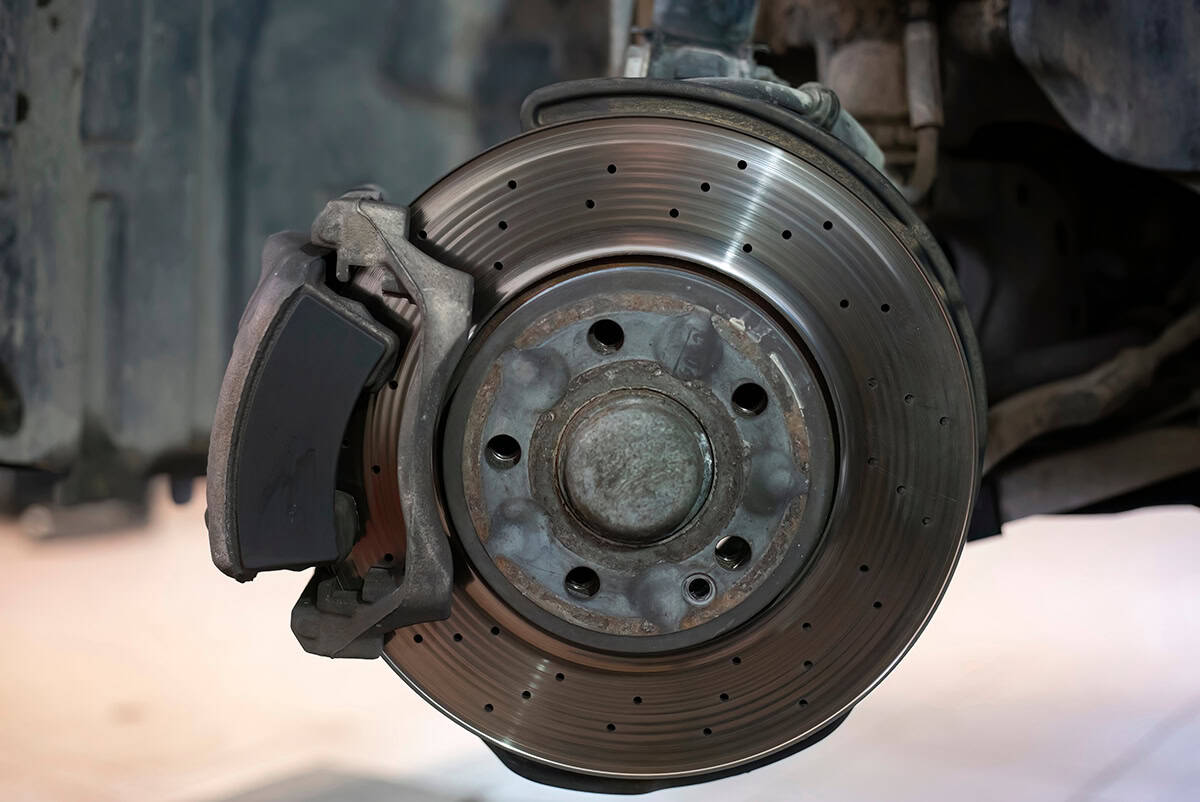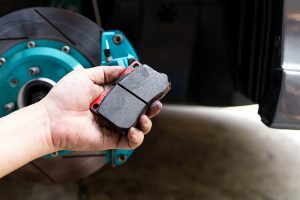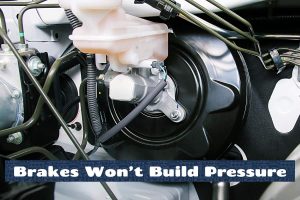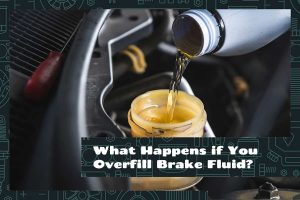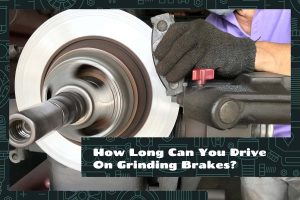Brake fluid plays a crucial role in your vehicle’s safety, making sure your brakes work properly every time you step on the pedal. However, sometimes things can go wrong, like brake fluid leaking from the caliper.
Brake fluid leaking from the caliper may be caused by the following:
- Worn or damaged caliper piston seals
- Cracked or corroded caliper body
- Loose or damaged bleeder valve
- Compromised brake line connections
- Faulty brake master cylinder
In this guide, we’ll provide a clear and straightforward overview of brake fluid leaks and their causes, specifically focusing on issues related to the caliper.
Types of Calipers and Their Common Issues
There are different types of calipers used in vehicles, each with its unique design and function. In this section, we’ll discuss the most common types and the issues that can arise with each.
1. Fixed calipers
Fixed calipers (PDF) are attached firmly to the brake rotor and don’t move when you apply the brakes. They have pistons on both sides of the rotor, which create pressure on the brake pads to stop the vehicle.
Some common problems with fixed calipers include uneven brake pad wear caused by stuck or seized pistons and brake fluid leaks from damaged piston seals.
2. Floating (sliding) calipers
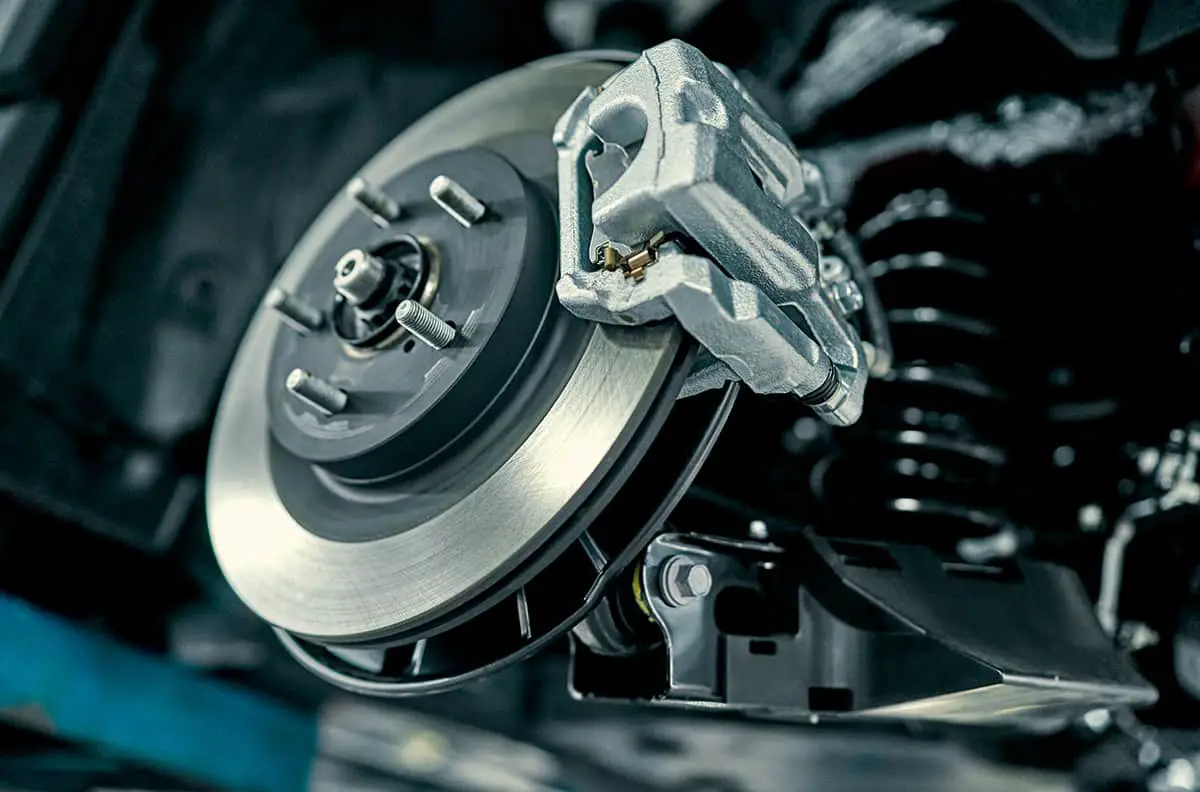
Floating calipers, also known as sliding calipers, can move in and out as you brake. They have one or more pistons on only one side of the rotor, and a sliding mechanism allows the caliper to center itself over the rotor when braking.
Issues with floating calipers often involve the sliding mechanism becoming stuck due to rust or debris, leading to uneven brake pad wear and reduced braking efficiency. Like fixed calipers, they can also experience brake fluid leaks from worn piston seals.
3. Multi-piston calipers
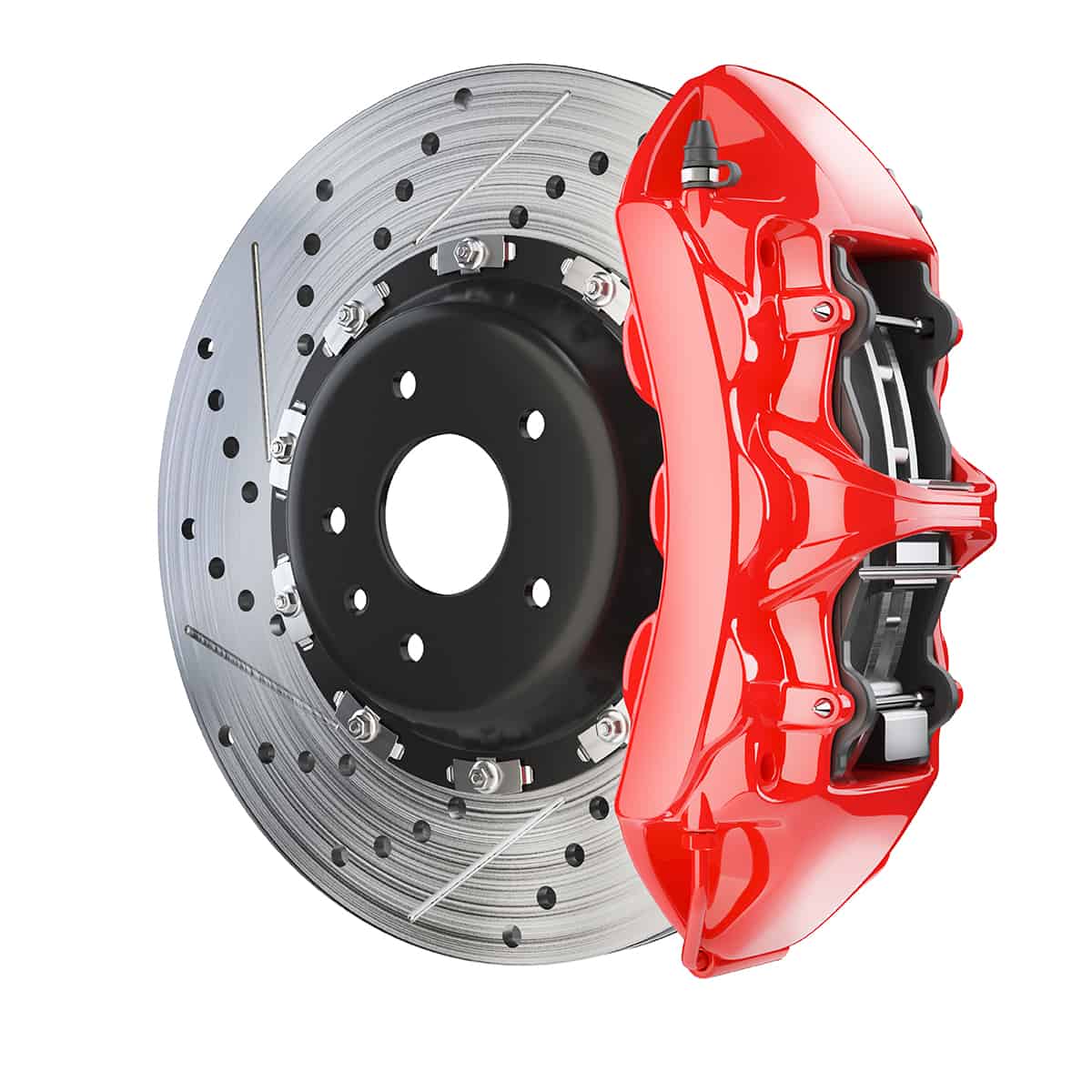
Multi-piston calipers have several pistons, usually found in high-performance or heavy-duty vehicles. These calipers can be either fixed or floating and provide increased braking power due to their multiple pistons.
The most common problems with multi-piston calipers are similar to those found in other types, such as uneven brake pad wear from seized pistons and brake fluid leaks from damaged seals. Multi-piston calipers may also require more frequent maintenance due to their complex design.
Identifying a Leaking Caliper
Detecting a brake fluid leak from your caliper is essential for your vehicle’s safety.
Visual inspection of the braking system
Start by looking at your vehicle’s wheels, brake lines, and calipers for any signs of wetness or fluid stains. You may see fluid dripping or pooling around the caliper or on the ground beneath your car. Check the brake pads and rotors as well, since brake fluid can cause them to wear unevenly or become damaged.
Testing brake pedal firmness
A soft or spongy feeling when you press the brake pedal could indicate a brake fluid leak. If your brake pedal feels less firm than usual, you might have a leak in your caliper or elsewhere in the braking system. To test this, pump the brake pedal several times and then hold it down. If it sinks to the floor slowly, you likely have a leak.
Identifying fluid pooling and stains
Look for fluid stains or puddles under your car, especially after it’s been parked for a while. Brake fluid is typically clear or light amber and may feel slippery to the touch. If you find fluid in or around your wheel wells, it could be a sign of a leaking caliper.
Tracking down the leak source
Once you’ve spotted signs of a brake fluid leak, it’s time to pinpoint the source. With your car safely raised and supported, remove the wheel and closely examine the caliper, brake lines, and connections. Look for fluid around the piston seals, bleeder valve, and brake line connections to identify the exact location of the leak.
Causes of Brake Fluid Leaks
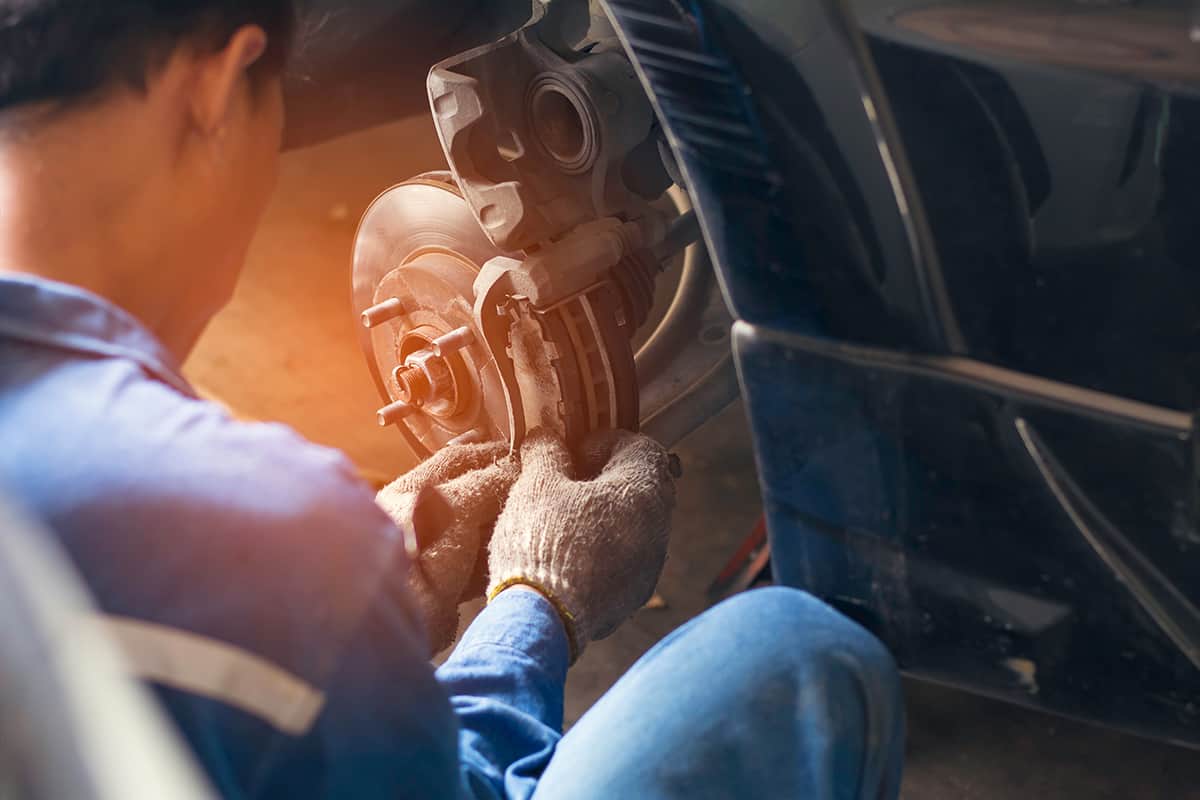
Brake fluid leaks can be caused by various issues within your vehicle’s braking system. Let’s explore the main causes of brake fluid leaks and how they’re related to the caliper.
1. Worn or damaged caliper piston seals
Piston seals in the caliper are designed to keep brake fluid inside while allowing the piston to move freely. Over time, these seals can wear out or become damaged, causing brake fluid to leak. If you notice fluid around the caliper piston area, it’s likely due to worn or damaged seals.
2. Cracked or corroded caliper body
The caliper body can crack or corrode over time, especially in harsh driving conditions or areas with high levels of road salt. If the caliper body is compromised, brake fluid may seep through the cracks or corroded areas.
3. Loose or damaged bleeder valve
The bleeder valve on the caliper is used to release air and excess brake fluid from the system. If the valve becomes loose or damaged, it can cause brake fluid to leak.
4. Compromised brake line connections
Brake lines connect the caliper to the rest of the braking system, allowing brake fluid to flow throughout. If these connections become loose or damaged, brake fluid may leak.
5. Faulty brake master cylinder
The brake master cylinder is responsible for distributing brake fluid to the calipers when you press the brake pedal. A damaged or malfunctioning master cylinder can cause brake fluid to leak from the caliper or other parts of the braking system.
How to Fix Brake Fluid Leaking from Caliper
This section will guide you through the steps to address common issues related to caliper leaks.
1. Repairing Caliper Piston Seals
If the caliper piston seals are worn or damaged, you’ll need to replace them. First, safely lift your vehicle and remove the wheel to access the caliper.
Detach the caliper from the brake rotor and disconnect the brake line. Carefully remove the piston from the caliper bore, and then replace the old seals with new ones. Reassemble the caliper, reattach it to the rotor, and reconnect the brake line. Finally, bleed the brake system to remove any air trapped inside.
2. Addressing Caliper Body Issues
If you find cracks or corrosion on the caliper body, it’s important to address them promptly.
For minor damage, you might be able to clean the area and apply a specialized caliper repair compound.
However, if the damage is extensive or the caliper’s integrity is compromised, it’s safer to replace the entire caliper. Consult a professional mechanic if you’re unsure about the extent of the damage or the best course of action.
3. Fixing Bleeder Valve Problems
To fix a leaking bleeder valve, first, try tightening it with a wrench. If the leak persists, you may need to replace the valve.
Remove the old valve, clean the threads in the caliper, and install a new valve, ensuring it’s properly tightened. Afterward, bleed the brake system to remove any air that might have entered during the repair.
4. Resolving Brake Line Connection Leaks
If the brake line connections are causing the leak, inspect them for damage and ensure they’re properly tightened.
If necessary, replace any damaged hoses or fittings. Make sure the brake lines are routed correctly and secured with appropriate clips or brackets to prevent future leaks. After fixing the connections, bleed the brake system to ensure proper brake function.
5. Diagnosing and Repairing Master Cylinder Issues
A faulty brake master cylinder can cause brake fluid to leak from the caliper or other parts of the braking system.
To diagnose a master cylinder issue, check for signs of wear, fluid leaks, or a spongy brake pedal. If you suspect the master cylinder is the culprit, you may need to repair or replace it. Repair kits are available for some master cylinders, but in many cases, replacement is the best option.
Consult a professional mechanic for a proper diagnosis and repair if you’re not confident in tackling this task yourself.
FAQs
1. How often should brake fluid be changed?
Brake fluid should typically be changed every two to three years, or around 45,000 miles, depending on your vehicle’s manufacturer recommendations. You should change brake fluid because it can absorb moisture from the air over time, which lowers its boiling point and can lead to reduced braking performance.
2. Can a leaking caliper cause brake failure?
Yes, a leaking caliper can cause brake failure. When brake fluid leaks from the caliper, it reduces the amount of fluid in the braking system, which can make it more difficult for the brakes to create enough pressure to stop the vehicle.
In addition, the leak may cause air to enter the system, which can lead to a spongy brake pedal and further reduce braking efficiency. If you suspect a leaking caliper, it’s crucial to address the issue as soon as possible to prevent brake failure and ensure your vehicle’s safety on the road.
3. Can I use any brake fluid in my vehicle?
No, you should always use the specific type of brake fluid recommended by your vehicle’s manufacturer. There are different types of brake fluid, such as DOT 3, DOT 4, and DOT 5, which have different boiling points and chemical compositions. Using the wrong type of brake fluid can cause reduced braking performance or damage to your vehicle’s braking system.
Always consult your owner’s manual or a professional mechanic to determine the correct type of brake fluid for your car. Remember to never mix different types of brake fluids, as this can lead to dangerous chemical reactions and compromise the performance of your braking system.
